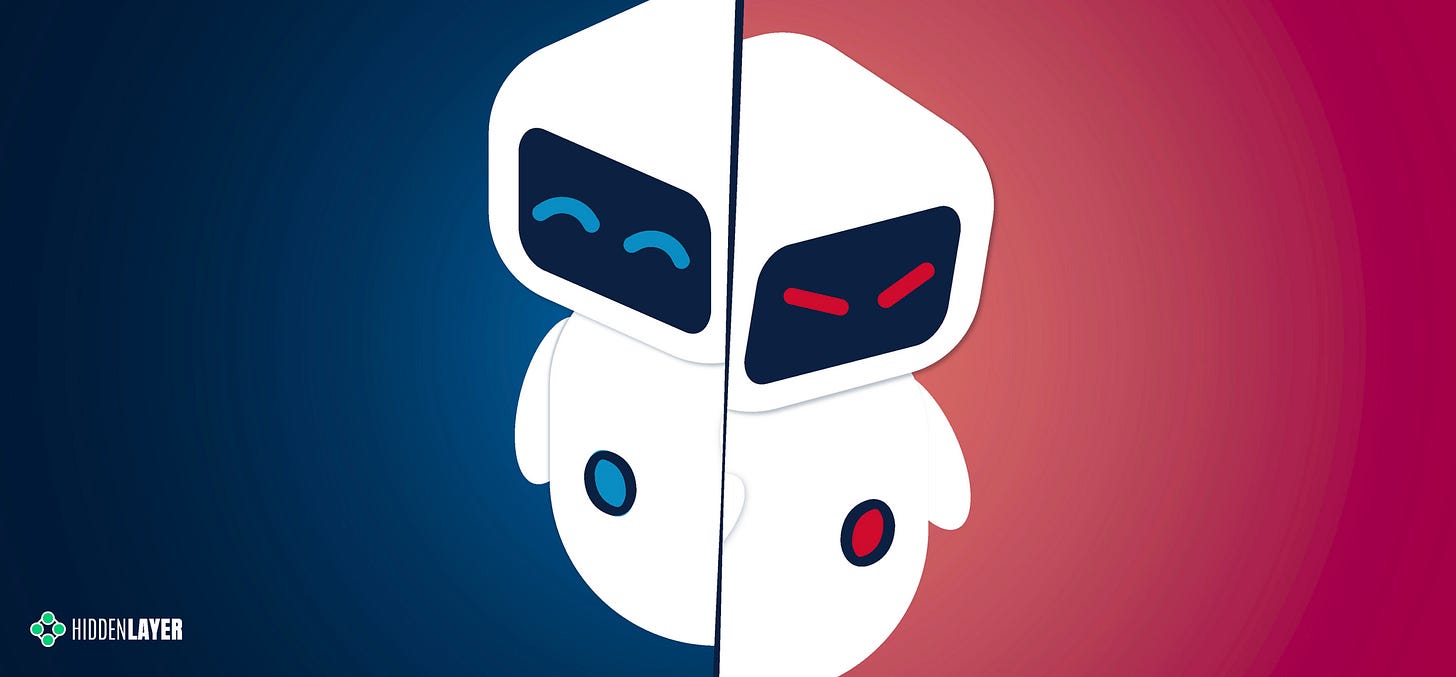Product AI Agent's Weekly Briefing
A weekly edition, where I dive into the latest developments sharing Generative AI and Agentic based digital products.
Hello there!
Welcome to this week’s briefing, where we dive into the latest happenings in the world of Generative AI and agentic development.
Over the past week, discussions have intensified regarding human-machine collaboration. There’s also a focus on new AI testing frameworks and user-focused design principles.
These themes show that people recognise the importance of humans and machines working together well. They also emphasise the importance of AI systems prioritising the user experience.
Let’s explore the key developments that are shaping our industry.
COMING END JULY 2025!
If you want to ‘Master Agentic AI product and design’ before your competition…..
……enjoy a 50% discount on the ‘No Spoon Survival Guide’.
⏰ This Week’s Digest (TL;DR) ⏰
1️⃣ AI is boosting teamwork between humans and machines. – Read on
2️⃣ Agentic AI Testing Revolution with a new way of software testing. – Read on
3️⃣ As technology changes, it's crucial to design AI systems with UX. – Read on
4️⃣ PMs are shouting about the struggles with Ai in workflows.
5️⃣ Roundup of key AI conferences scheduled for 2025 – Read on
Estimated reading time: 8 minutes
👀What Caught My Eye in AI This Week 👀
When diving into CData’s breakdown of Model Context Protocol (MCP) limitations, it’s clear that while MCP promises agentic memory synergy, the road to enterprise-grade deployment is full of potholes.
The MCP growing pains – real deal
🔓 Security Risks
Prompt injection, tool poisoning, “shadow” tools—all could open backdoors into core systems.
Protocol-level identity ambiguities make it hard to track “who did what” .
🧱 Scalability & State Complexity
MCP relies on stateful Server-Sent Events, making load balancing and horizontal scaling challenging.
Integrating SSE with stateless REST APIs adds overhead.
🔄 Fragmented Adoption
Varying maturity levels in MCP servers, inconsistent feature support, and vendor lock-in risks hamper enterprise production plans.
🚧 Why this matters for Product people 🚧
If you’re building workflow-driving AI agents, MCP isn’t just a connector—it becomes the nervous system.
But for it to work reliably at scale, you need:
End-to-end security (auth, injection checks, monitoring)
State governance (memory lifespan, drop-off, consistency)
Standardised protocols (error handling, tool discovery, resilience)
A half-baked MCP integration can break trust faster than any prompt failure.
🛠️ What can Product people do about it 🛠️
This isn't a reason to pause—it's a call to upgrade your agentic infrastructure:
Require MCP servers with enterprise auth (OAuth, SSO, SAML).
Audit state and memory policies—how long do past session contexts persist?
Demand error-handling stacks and fallback channels for broken flows.
Test load and scaling scenarios, especially for multi-agent setups.
Push vendors to participate in interproto interoperability (ACP, A2A, ANP) via industry groups.
📦 Lessons from Real AI Product builds 📦
What I’ve Observed on the Front Line in the Last 7 Days
Pulse-checking this week's PMs, and they’re really thinking about AI agents. Candid takes on runaway scope, sloppy AI inputs, and the hunt for handy PM tools.
Here are the top conversations this week:
💸 OpenAI’s $10K Developer Agent Sparks Fears
Product managers are reacting to OpenAI’s rumoured “developer agent” with mixed feelings. Some joke, “All the humans will be dead.” Others fear bloated requirements that turn into 100-page PRDs. As agent capabilities grow, so does scope complexity. PMs are bracing for feature creep and unreadable user stories.
🧰 “AI PM Assistants”: Community seeks contextual tools
PMs are tired of surface-level chatbots. They're asking, “Where are the AI agents that understand our docs, templates, and workflows?”. Custom GPTs and shared prompt playgrounds are being tested for productivity, but there’s no memory in sight to support this frustration.
🗑️ “AI Slop”: Managing low-effort, high-noise Inputs
A lively thread tackled the flood of poorly written AI-generated suggestions from stakeholders, “How do we stop junk from hitting our backlogs?”
PMs are demanding filters, review loops, and stronger governance. Without content quality controls, AI adds chaos, not clarity.
⚛️ Key Trends of the Last 7 Days ⚛️
1. Human-Machine Teaming (HMT)
Organisations see their ability to boost productivity. As AI advances, utilising machine learning to predict human behaviour is crucial for enhancing HMT.
2. Agentic AI Testing
The testing landscape is changing quickly with new agentic AI frameworks. These systems learn and adapt. They reduce maintenance time, allowing teams to focus on key quality initiatives. Recent research shows that organisations using these frameworks can achieve 20-30% efficiency gains.
3. User-Centric AI Design
As AI becomes more widely used, it's crucial to focus on user-centric design principles. Recent talks stress the need for AI systems to be easy to use and accessible. This way, they can cater to many different users. This approach boosts user satisfaction and builds trust in AI systems.
4. AI Conference Landscape
The AI conference scene in 2025 looks strong. Events such as the AI Conference in San Francisco and the Data + AI Summit offer valuable insights and excellent opportunities to connect with others. These gatherings are crucial for staying informed about the latest trends and advancements in AI.
🛠️ Top Tools of the Last 7 Days 🛠️
1. Virtuoso
An AI Testing platform for testing automation. It adjusts to changes in applications. Its self-healing features cut down maintenance work. This lets teams focus on strategic testing.
2. Llama 4
An advanced AI model designed for natural language processing tasks. It understands context well and creates text that sounds human. This makes it an excellent tool for developers.
3. Dribble
A complete set of tools for developers to create user-friendly AI interfaces. This toolkit emphasises empathy and user feedback in the design process.
4. Replit
This tool gives real-time insights into how users interact with AI systems. It helps organisations improve their AI solutions by understanding user behaviour.
5. Test Sigma
Automation is a platform. It lets non-technical users create automated tests in plain English. This makes testing easier and more efficient.
🔬Academic and Research Papers of the Last 7 Days 🔬
1. Mastering Human-Machine Teaming
This paper examines ways to enhance teamwork between humans and machines. It focuses on how AI helps boost teamwork. The findings demonstrate that effective HMT can improve performance in complex systems.
2. User-Centric AI Design Principles
This research highlights the importance of designing AI systems with users in mind. It emphasises accessibility and inclusivity. The authors argue that user-centric design is essential for fostering trust in AI technologies.
3. The Future of AI Testing
This paper examines the evolution of AI testing frameworks. It focuses on the move towards agentic AI systems that can learn and adapt. The authors show case studies that highlight the efficiency gains from these new approaches.
4. AI in Software Development
This study demonstrates the impact of AI on software development, particularly in testing and quality assurance. The authors provide insights into how AI can streamline workflows and improve product quality.
5. Generative AI and User Experience
This paper examines how generative AI enhances user experiences across various applications, like journaling. The findings suggest that generative AI can significantly improve user engagement and satisfaction.
📅 Upcoming Events 📅
1. AI Conference San Francisco
Scheduled for September 17-18, 2025, this event will showcase the latest advancements in AI. It will include keynote speakers and opportunities for networking.
2. Data + AI Summit
Happening from June 9-12, 2025, this hybrid event will cover data engineering, governance, and machine learning. It will provide helpful insights and training workshops.
3. World Summit AI
This big conference will take place in Amsterdam on October 8-9, 2025. It will feature keynote speakers and talks on the applications of generative AI across various industries.
That’s it for this week.
If you want to stay up to date with my weekly digest, be sure to click the subscribe button.
See you next week.






